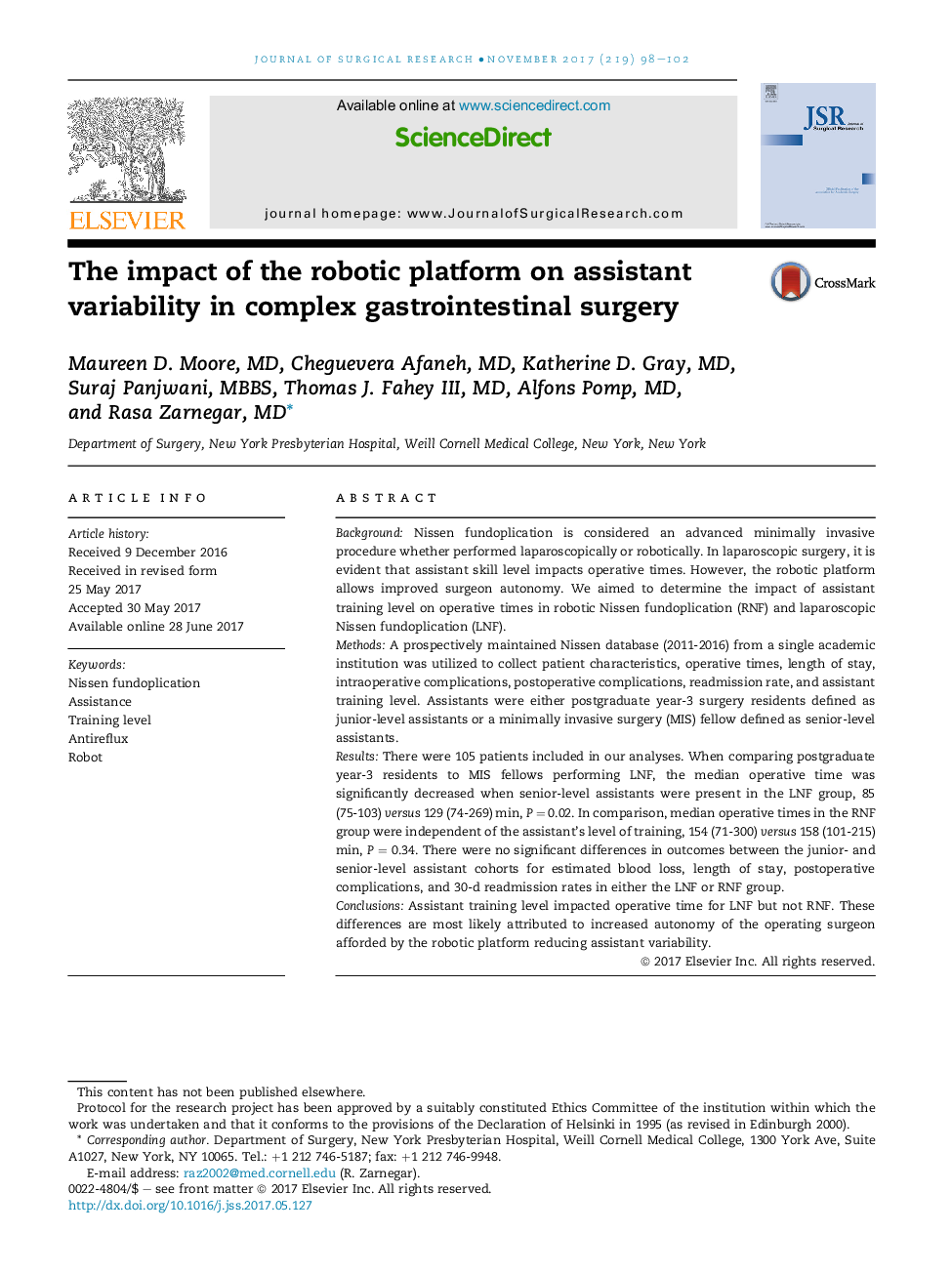| Article ID | Journal | Published Year | Pages | File Type |
|---|---|---|---|---|
| 5733990 | Journal of Surgical Research | 2017 | 5 Pages |
BackgroundNissen fundoplication is considered an advanced minimally invasive procedure whether performed laparoscopically or robotically. In laparoscopic surgery, it is evident that assistant skill level impacts operative times. However, the robotic platform allows improved surgeon autonomy. We aimed to determine the impact of assistant training level on operative times in robotic Nissen fundoplication (RNF) and laparoscopic Nissen fundoplication (LNF).MethodsA prospectively maintained Nissen database (2011-2016) from a single academic institution was utilized to collect patient characteristics, operative times, length of stay, intraoperative complications, postoperative complications, readmission rate, and assistant training level. Assistants were either postgraduate year-3 surgery residents defined as junior-level assistants or a minimally invasive surgery (MIS) fellow defined as senior-level assistants.ResultsThere were 105 patients included in our analyses. When comparing postgraduate year-3 residents to MIS fellows performing LNF, the median operative time was significantly decreased when senior-level assistants were present in the LNF group, 85 (75-103) versus 129 (74-269) min, PÂ =Â 0.02. In comparison, median operative times in the RNF group were independent of the assistant's level of training, 154 (71-300) versus 158 (101-215) min, PÂ =Â 0.34. There were no significant differences in outcomes between the junior- and senior-level assistant cohorts for estimated blood loss, length of stay, postoperative complications, and 30-d readmission rates in either the LNF or RNF group.ConclusionsAssistant training level impacted operative time for LNF but not RNF. These differences are most likely attributed to increased autonomy of the operating surgeon afforded by the robotic platform reducing assistant variability.
